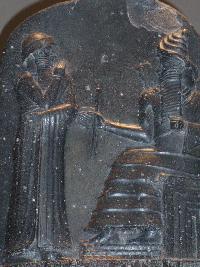In honor of the great Chilean poet (Pablo Neruda July 12, 1904 – July 12, 2004) Auteur du fil: Aurora Humarán (X)
|
|---|
Aurora Humarán (X) 
Argentine
Local time: 17:05
anglais vers espagnol
+ ...
 Ave Prozians! Ave Prozians!
In honor of the great Chilean poet: http://www.alephtranslations.com/ingconozcamos.htm
(translated by my colleague and friend, Dan Newland)

... See more Ave Prozians! Ave Prozians!
In honor of the great Chilean poet: http://www.alephtranslations.com/ingconozcamos.htm
(translated by my colleague and friend, Dan Newland)

Overdue Ode to Neruda: Chile Tries to Reconcile Love and Politics
July 6, 2004
By CAROLYN CURIEL
That Pablo Neruda was the greatest poet of the last century is beyond argument in much of South America. Certainly he ranks with the most prolific. Among his hundreds of works, there are sonnets, odes, epics and something greater: longevity. Three decades after his death, Neruda, who would
have been 100 years old next Monday, is again heating up the world with his metaphors.
Devotees from New Delhi to Santiago, in his native Chile,are gathering for breathless readings and deeper discussions of this complicated man, a sensual communist who loved nature almost as much as he loved women, food and wine. A 1971 Nobel laureate, he was also an ambassador and
a politician who sat in the Senate and ran for president.
In his teens he took a pen name drawn from the Czech writer, Jan Neruda. The lyrical carnality of his second book of poetry, "Veinte Poemas de Amor y una Canción Desesperada ("Twenty Love Poems and a Song of Despair"), brought him fame by the age of 20. But for Neruda, love and beauty vied for attention with social justice.
The poet's outspoken politics made him unwelcome in his native country for a time, a legacy the current government of Chile hopes to bury with praise. Neruda fled Chile in 1948 and spent years in exile after he criticized President Gabriel González Videla's turn to the right in the late 1940's. It was in this period that he produced his epic "Canto General," a loving look at South America's geography and people, ranging from "The Heights of Machu Picchu" to the lows of imperialism.
Neruda eludes easy categorization. His themes of personal and political liberation may have echoed Walt Whitman, William Blake and Charles Baudelaire. But his surreal imagery and energy, which animated topics as mundane as his "Ode to the Onion," were all his own.
Neruda's timeless musings on lost love and the truths of the human heart - "Es tan corto al amor, y es tan largo el olvido" (Love is so short, forgetting is so long) - might alone prompt worldwide remembrance. ut there is as much politics as prose driving this party. Chile's government wants to heal some old wounds. Many Chileans believe Neruda's death was hastened by the shock of the bloody coup that overthrew his friend, President Salvador Allende, a Socialist, and installed Augusto Pinochet as dictator on Sept. 11, 1973. Days before he died, Neruda lay bedridden as soldiers ransacked his home. "The only weapons here," he is said to have told them, "are words."
The Pinochet government completed the indignity by hastily burying Neruda in Santiago, not in the seaside town of Isla Negra, as he wished. That mistake was rectified nearly 20 years later, after General Pinochet was removed from power and the government began a shift toward the center. Shortly thereafter, a widely seen Italian movie, "Il Postino," told a fictionalized story of Neruda's playing cupid on an island during his exile, and another generation found the transformative power of language in Neruda poems, which transcend most translation. Still, the original Spanish has inexplicable force.
Delivering "Si Tu Me Olvidas" (If You Forget Me) at a reading at the Library of Congress two years ago, I found Neruda's words propelling themselves from my tongue in a way the translated English never could. "My love feeds on your love, beloved" seems sedate next to "Mi amor se nutre de tu amor, amada."
On the day of Neruda's birth, the final sigh of a long-delayed homage begins. More than 65 Chilean embassies will award medals named for Neruda to luminaries in the humanities. In Chile, there will be parades, and aircraft will drop copies of his poems. There will reportedly even be an attempt - not officially sanctioned - to summon Neruda through a seance. But the most fitting tribute is the simplest and the most lasting: reading his poems.
http://www.nytimes.com/2004/07/06/opinion/06TUE4.html?ex=1090128687&ei=1
[Edited at 2004-07-12 09:16] ▲ Collapse
| | | | | A most honourable poet indeed! | Jul 12, 2004 |
Thanks for sharing this, Aurora! I had no idea that he would have been a 100 years old today; he's still my favourite poet nonetheless (mostly in English translation, although I try and practice my rusty Spanish in reading the originals when I can!) and he was indeed an amazing poet and led a fascinating life. I agree totally with the end of the article:
But the most fitting tribute is the simplest and the most lasting: reading his poems.
Aisha ... See more ... See more Thanks for sharing this, Aurora! I had no idea that he would have been a 100 years old today; he's still my favourite poet nonetheless (mostly in English translation, although I try and practice my rusty Spanish in reading the originals when I can!) and he was indeed an amazing poet and led a fascinating life. I agree totally with the end of the article:
But the most fitting tribute is the simplest and the most lasting: reading his poems.
Aisha ▲ Collapse
| | | | Aurora Humarán (X) 
Argentine
Local time: 17:05
anglais vers espagnol
+ ...
AUTEUR DU FIL
Aisha Maniar wrote: But the most fitting tribute is the simplest and the most lasting: reading his poems. Aisha 
Pablo's "poetic questions". Enjoy him....
 Au Au
Where does the springtime
in France get so many leaves?
If the yellow runs out,
what will we make bread with?
Is there anything sadder in the world
than a train standing still in the rain?
Do the tears that are not wept
wait in little lakes?
Or are they invisible rivers
that flow toward sadness?
Is the peace of the dove peace?
Does the leopard make war?
Why do the leaves commit suicide
when they feel yellow?
From your ashes, will
Czechoslovakians or turtles be born?
How did the grapes come to know
the propaganda of the bunch?
What has the watermelon got to laugh about
when it is being murdered?
Isn't it better never than late?
Have you ever thought that color
is the April of the ill?
Is death made of "not being"
or of dangerous substances?
Was it where they lost me
That I finally managed to find myself?
The poet...Pablo Neruda
The translator...Dan Newland
| | | | | A poem to share | Jul 23, 2004 |
AL PIE DESDE SU NIÑO
El pie del niño aún no sabe que es pie,
y quiere ser mariposa o manzana.
Pero luego los vidrios y las piedras,
las calles, las escaleras,
y los caminos de la tierra dura
van enseñando al pie que no puede volar,
que no puede ser fruto redondo en una rama.
El pie del niño entonces fue derrotado, cayó
en la batalla,
fue prisionero,
condenado a vivir en un zapato.
P... See more AL PIE DESDE SU NIÑO
El pie del niño aún no sabe que es pie,
y quiere ser mariposa o manzana.
Pero luego los vidrios y las piedras,
las calles, las escaleras,
y los caminos de la tierra dura
van enseñando al pie que no puede volar,
que no puede ser fruto redondo en una rama.
El pie del niño entonces fue derrotado, cayó
en la batalla,
fue prisionero,
condenado a vivir en un zapato.
Poco a poco sin luz
fue conociendo el mundo a su manera,
sin conocer el otro pie, encerrado,
explorando la vida como un ciego.
Aquellas suaves uñas
de cuarzo, de racimo,
se endurecieron, se mudaron
en opaca substancia, en cuerno duro,
y los pequeños pétalos del niño
se aplastaron, se desequilibraron,
tomaron formas de reptil sin ojos,
cabezas triangulares de gusano.
Y luego encallecieron,
se cubrieron
con mínimos volcanes de la muerte,
inaceptables endurecimientos.
Pero este ciego anduvo
sin tregua, sin parar
hora tras hora
el pie y el otro pie,
ahora de hombre
o de mujer,
arriba,
abajo,
por los campos, las minas,
los almacenes y los ministerios,
atrás,
afuera, adentro,
adelante,
este pie trabajó con su zapato,
apenas tuvo tiempo
de estar desnudo en el amor o el sueño,
caminó, caminaron
hasta que el hombre entero se detuvo.
Y entonces a la tierra
bajó y no supo nada,
porque allí todo y todo estaba oscuro,
no supo que había dejado de ser pie,
si lo enterraban para que volara
o para que pudiera
ser manzana.
Pablo Neruda
“Estravagario” ▲ Collapse
| | |
|
|
|
Frank Hesse 
Mexique
Local time: 14:05
néerlandais vers anglais
+ ...
Thank you Aurora and Sandra for sharing this.
| | | | To report site rules violations or get help, contact a site moderator: You can also contact site staff by submitting a support request » In honor of the great Chilean poet (Pablo Neruda July 12, 1904 – July 12, 2004) | Anycount & Translation Office 3000 | Translation Office 3000
Translation Office 3000 is an advanced accounting tool for freelance translators and small agencies. TO3000 easily and seamlessly integrates with the business life of professional freelance translators.
More info » |
| | TM-Town | Manage your TMs and Terms ... and boost your translation business
Are you ready for something fresh in the industry? TM-Town is a unique new site for you -- the freelance translator -- to store, manage and share translation memories (TMs) and glossaries...and potentially meet new clients on the basis of your prior work.
More info » |
|
| | | | X Sign in to your ProZ.com account... | | | | | |








